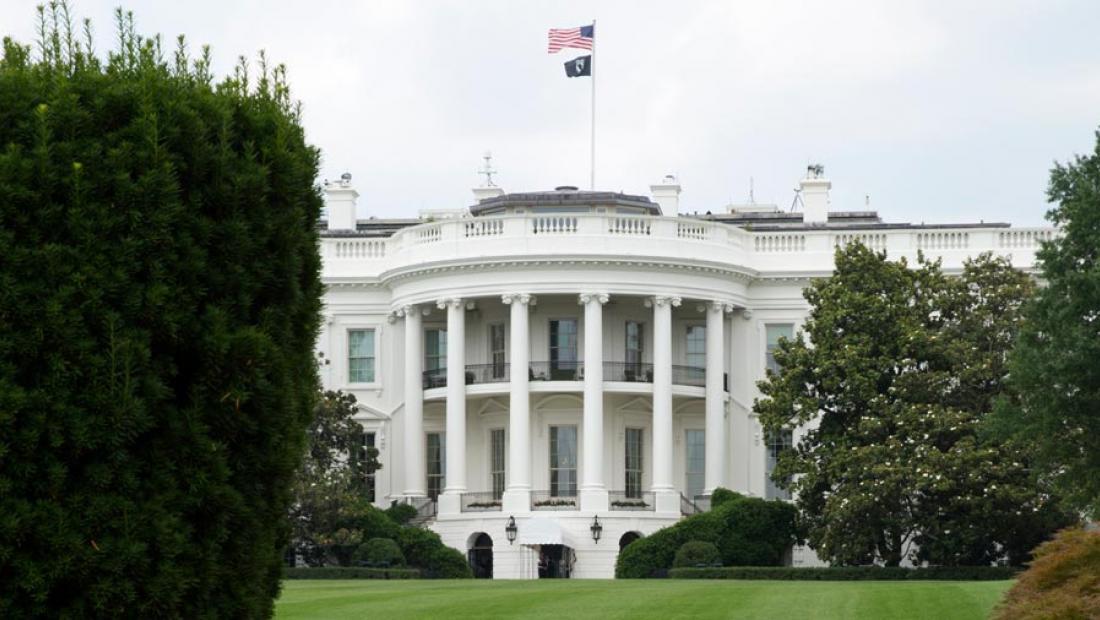Trump Administration Pressed on Alleged Journalist, Activist Surveillance

The smarter way to stay on top of broadcasting and cable industry. Sign up below
You are now subscribed
Your newsletter sign-up was successful
TV and radio journalist and many others have signed on to a letter to the Department of Homeland Security expressing their concerns about the reports of journalists, activists and lawyers being targeted by DHS and urging it to discontinue such alleged practices.
Related: TV Station Reports Trump Administration Targeted Journalists
The Radio Television Digital News Association, National Association of Black Journalists, Center for Democracy and Technology and a hundred other groups that cited the reports that DHS was creating dossiers and imposing heightened border screening based on associations with immigrants seeking asylum.
Related: Privacy Groups Pan Surveillance Wall Option
Those actions, they wrote, "may violate the Privacy Act of 1974 and threaten the exercise of First Amendment-protected activities, including freedom of speech and association and freedom of the press, as well as the delivery of legal services."
NBC station KNSD San Diego (NBC 7) last month reported that the Trump Administration teamed up with the Mexican government to target journalists covering the migrant caravan, including denying some of them entry into Mexico later on.
That is according to documents it obtained from a Homeland Security source and posted on the station's website.
The smarter way to stay on top of broadcasting and cable industry. Sign up below
They apparently created a database of journalists, "media influencers," activists and attorneys and put alerts on some of their passports.
The letter makes a laundry list of "respectful requests":
1. "Cease any targeting and monitoring of activists, journalists, and lawyers—including through social media—based upon their First Amendment-protected speech and associational activities;
2. "Cease searching and detaining electronic devices at the border held by activists, journalists, and lawyers absent a warrant based on probable cause that they are involved in criminal or immigration violations;
3. Take steps to ensure that enforcement activities are not politically motivated and do not amount to retaliation against or interference with the exercise of First Amendment rights;
4. "Task the DHS Civil Rights and Civil Liberties Office and the DHS Privacy Office with investigating the targeting and monitoring activity that occurred and publicly reporting their findings;
5. "Disclose the investigative guidelines, handbooks and criteria that govern this conduct, as well as those that specifically guide ICE and CBP investigations, including for example CBP Directive 5410-003 “Operational Use of Social Media” (Jan. 2, 2015), and any legal analysis of the agency’s authority to engage in this conduct under the Constitution or applicable statutes and regulations;
6. "Disclose the training materials provided to ICE and CBP investigators, and in particular, any training materials related to First Amendment protected activities;
7. "Disclose the CBP policies governing encounters with journalists to which CBP spokesman Andrew Meehan referred in a statement on March 7, 2019;20
8. "Disclose any policies related to the treatment of journalists and lawyers by CBP and ICE;
9. "Disclose whether DHS communicated with foreign governments about activists, lawyers, and journalists in order to further restrict their lawful travel; and
10. "Disclose the categories of information DHS shared with foreign governments about activists, lawyers, and journalists, as well as the categories of information collected by foreign governments that those governments shared with DHS."
Contributing editor John Eggerton has been an editor and/or writer on media regulation, legislation and policy for over four decades, including covering the FCC, FTC, Congress, the major media trade associations, and the federal courts. In addition to Multichannel News and Broadcasting + Cable, his work has appeared in Radio World, TV Technology, TV Fax, This Week in Consumer Electronics, Variety and the Encyclopedia Britannica.

